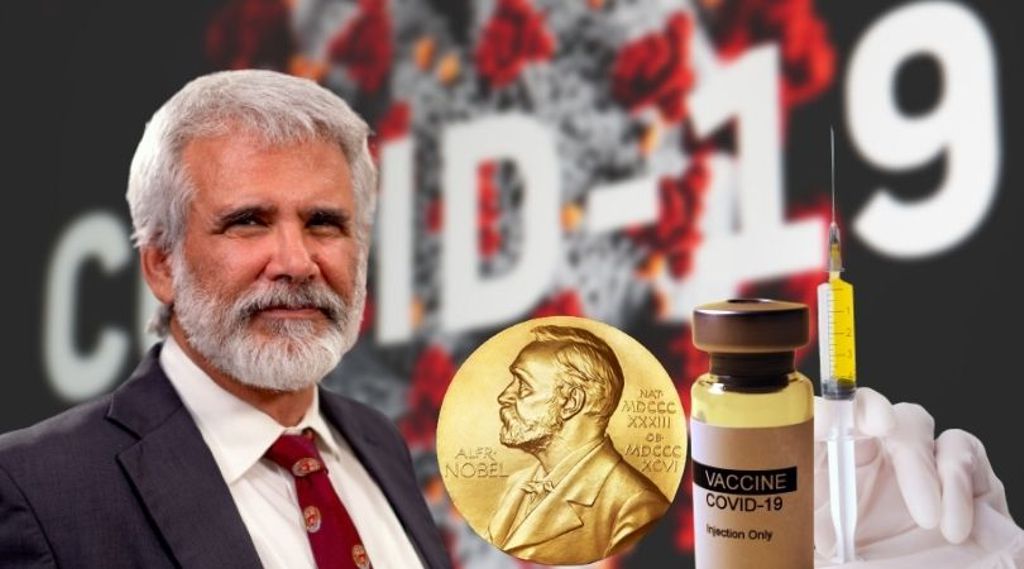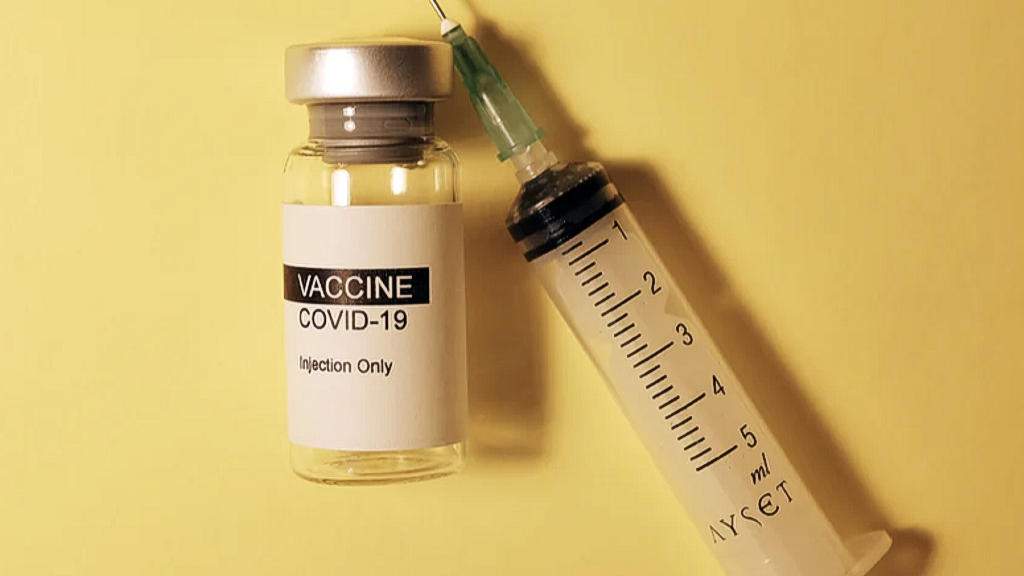
This interview is Part II in a series (read Part I). It was originally published by American Greatness, which caught up with American doctor and virologist Robert Malone in Rome last month. He was there for the International COVID Summit at the Italian Senate and hosted by senators from the radical Right Lega, which is a partner in Italy’s coalition government of national unity, led by the ex-boss of the European Central Bank Mario Draghi and dominated by the left-wing Partito Democratico and the alt-left Movimento 5 Stelle.
In this interview, Malone, who was among the pioneers of mRNA vaccine technology in the late 1980s, recounts his belief that genetic vaccines such as mRNA and viral vector vaccines may risk causing antibody dependent enhancement (ADE) — where a vaccine causes the production of rogue antibodies, which coming into contact with the virus, act as a Trojan horse shuttling it, now unchallenged by the immune system, directly into the host cell where it can replicate unhindered.
Malone is not against COVID-19 vaccines. But he is against compulsory and universal vaccination, which he thinks is potentially dangerous.
He believes that the viral load in vaccinated people who are infected is not just as high but possibly higher than the viral load in unvaccinated people who are infected — and thus that vaccinated people are potentially just as likely to transmit the virus as unvaccinated people.
The interview took place shortly before the announcement this week of this year’s Nobel Prizes, beginning with the prize for medicine on Monday, for which Malone was a contender.
American Greatness: You are a frequent contributor to the War Room — the daily podcast by former Donald Trump chief strategist Steve Bannon — and on one occasion you said that the Pfizer and Moderna vaccines might actually make COVID-19 infections worse. What did you mean by that?
Dr. Malone: Not only the Pfizer and Moderna mRNA vaccines, but also the viral vector vaccines Johnson & Johnson, Sanofi and AstraZeneca. Both these types of vaccines are genetic vaccines — they use genes to create antibodies — that’s different from traditional vaccines which work by introducing a small amount of the virus that causes antibodies. In vaccinology, one has to always be aware of the possibility that these genetic vaccines might enhance the development of immunologic disease — in other words, to cause the pathogen to become more infectious or cause more disease than would be observed without the vaccine.
One type of this vaccine-enhanced disease is called antibody-dependent enhancement (ADE), and this is a specific subtype of vaccine-enhanced disease.
It’s not just me that has been concerned about this possibility. It’s explicitly discussed by the U.S. government’s Food and Drug Administration both in the emergency vaccine use authorization documents, and subsequently it’s been discussed by [Anthony] Fauci, and it’s always complicated the development and deployment of coronavirus vaccines for as long as we’ve been trying to develop them.
Often the risk of ADE manifests during the waning phase of the vaccine response. What we’ve learned, surprisingly, is that these vaccines are not very durable — they don’t last very long, they don’t provide long-lasting protection. The protection may wane at something like five to eight months after administration. It’s during the time when the vaccine immune response titres are dropping, that the risk of ADE, or other vaccine-enhanced diseases, can be greatest.
AG: Is it too early to say whether these genetic vaccines are actually causing ADE? We’re not on the declining end of the disease?
Dr. Malone: Let’s take Israel. Israel was an early adopter of vaccines, and they vaccinated basically in a wave where the population was largely all vaccinated within a fairly short period of time because they’re a population that generally accepts direction from their government. The exception is the fundamentalist religious communities, many of which are still unvaccinated. There are indications in the data from Israel that suggest the possibility of vaccine-enhanced disease during the waning phase of the immune response, but the data are difficult to draw clear conclusions from due to the presence of these largely older, unvaccinated groups, which complicate interpretation.
That in itself is a little surprising because you would think that the previously vaccinated would have a lower viral load.
AG: So you think the better practice, if the government is going to vaccinate its people, would be to stagger it in phases?
Dr. Malone: That’s an interesting thought. No, I’m not advocating that, but rather I’m saying that in the case of Israel, the whole population is relatively synchronized. What we are observing is this high incidence of infection and disease in both vaccinated and unvaccinated. What we don’t know yet is whether or not the levels of virus being seen in these people post-vaccination are higher than the levels of virus replication in the patients who have not been vaccinated. What we do know is they’re at least equal. So that in itself is rather odd.
AG: Are these equal rates of infection among the vaccinated and unvaccinated because of the strength — particularly with regard to COVID— of most people’s natural immunity, providing stronger antibodies than the vaccine? Is that right?
Dr. Malone: No, you can’t compare the previously infected to the vaccinated. Actually, you can, but that’s a different question. What one needs to do is compare those who have not been vaccinated with those who have been vaccinated, perhaps six months ago, and check the level of virus replication in those that get infected from those two groups.
So again just to make it simple, we’ve got one group in Israel that still has not received a vaccine.
AG: Orthodox Jews?
Dr. Malone: Just so. One of the problems in looking at that group is they tend to be older. So there’s a lot of complications in the data, but there are enough of those unvaccinated that you can compare the amount of virus that is being produced in them when they get infected with Delta.
AG: The viral load?
Dr. Malone: Precisely. If you see the same level of virus replication in both, that in itself is a little surprising because you would think that the previously vaccinated would have a lower viral load, even if they were infected.
What we do know is that the viral load is at least equivalent. If we were to see that it’s higher compared to the unvaccinated that get infected, that would be a sign that there’s something about the vaccine that’s enabling the virus to replicate at higher levels, and that would be an example of vaccine-enhanced replication.
AG: In researching this interview, I also saw a piece in The Atlantic on you. I’ve got to throw this quote at you. Stan Gromkowski, a cellular immunologist who did work on mRNA vaccines in the early 1990s and views you as an under-appreciated pioneer, said “you’re fucking up your chances of a Nobel Prize.”
Dr. Malone: Anybody who knows Stan knows that is an accurate quote.
AG: Obviously there are a lot of people on the more totalitarian end of society, saying, “Trust the science, trust the scientists.”And yet when there is a legitimate discussion over how to interpret the science within the scientific community itself, Dr. Gromkowski seems to be saying “trust the politics.”
Dr. Malone: I’m sure Stan knew Kary Mullis [who died in 2019 and was the winner of the 1993 Nobel Prize for chemistry for his invention of the now-famous PCR test, and who subsequently expressed doubts that HIV caused AIDS and that man is the cause of climate change] before he passed away — they’re in the San Diego community — and Stan makes the point that Kary kept his mouth shut until after he was awarded the prize!
This all assumes that I’m even a viable candidate. For me, this is a little odd. All of this fame, and folks like you wanting to interview me, and opportunities to speak to people in the Vatican, is not something that I’ve sought out. I’ve been standing on principle and knowledge — and trying to express an objective, fact-based position all the way through this in an environment in which there’s a lot of public health politics.
My understanding is that I am a candidate; so are many others. You may recall the event that launched this for me was this Bret Weinstein podcast. And each of us came to that table with an acute awareness of how much risk we were taking. I was risking my career, and if I am a viable candidate, risking potentially that I would be making controversial statements that would cause the committee to have second thoughts — to question whether or not it would be too much risk to consider me seriously for the Prize.
Bret was risking being deplatformed and losing his income, which in fact he did. [Bret Weinstein is a former biology professor at Evergreen State College in Washington who defines himself as “politically liberal, progressive and left-libertarian.”]
AG: I have a chemistry degree, I’m not remotely anti-science. But outside of science, there’s a view in the media from people that studied English literature or theater studies or gender equality intersection or what have you, basically the non-science degrees that have a lot of voice in public opinion. When they say “trust the science,” they have an incorrect understanding of what the scientific process actually is. There’s as much politics within science as there is anywhere else. It’s not that you go into science and then you become absolutely neutral.
Dr. Malone: Oh definitely. It is intensely competitive, intensely political, and academic science is a wickedly brutal environment. Academic politics are absolutely wicked, and scientific politics are just as rough and tumble as any other.
AG: Karl Popper made an essential contribution to the philosophy of science when he defined the concept of the “criterion of falsifiability.” When we’re talking about these things — for example, with global warming — where is the criterion of falsifiability in all this? As with climate change, there’s the idea that science has sanctioned, has rubber-stamped a view and it has now become a dogma to be held with a religious degree of fervor. Because of the idea, “it’s science,” no one can disagree with it.
Dr. Malone: So the phrase that’s used is “scientism versus science.” And the observation is that science, historically, has tended towards priesthood, with high priests that are empowered to determine truth. And we know that truth is arrived at in science via a more Socratic path of constant questioning, and that’s the school that I come from. It’s one in which there’s never a final truth, in most cases, but rather a dynamic tension. And in the case of this outbreak and these vaccines, our knowledge is imperfect. And I believe — strongly — that one must constantly question and re-evaluate what the data are teaching us and then deploy that evolving awareness in public policy. I believe that this monolithic approach to public policy during an outbreak is counterproductive.
We’re in an environment where there’s been unprecedented control of media and information and widespread dissemination of outright propaganda.
AG: Finally, to return to where we started, Steve Bannon, in his War Room podcast, was talking right back in the early days about “gain-of-function” research. That was a term I didn’t see break into mainstream media for at least 12 months afterwards. Bannon was really way ahead of anyone else on this. So what do you say to colleagues who feel respected scientists shouldn’t be appearing on his podcast?
Dr. Malone: I get criticized. I also had quite a bit of blowback for going on Tucker Carlson. We’re in an environment where there’s been unprecedented control of media and information and widespread dissemination of outright propaganda. If one wishes to have an example of this, the coordinated denigration of ivermectin as a horse drug, which is absurd, when in fact it’s also clearly intended for human use — it’s on the WHO list of essential medicines. Billions of doses have been deployed. Characterizing it as a horse drug universally throughout the media is an overt example of the propaganda that’s been pushed.
So we’re in a situation in which all of the mainstream outlets, which have a very narrow ownership of all of them … largely traces back to a very small number of big investment funds that also control the pharmaceutical companies and many others.
In this environment, where media is almost completely controlled, there’s a very small number of people that have a media voice — that are open to alternative points of view, not officially sanctioned. My experience with Steve Bannon is that this is a gentleman who has a very active mind, very broad education, deep understanding of history, deep understanding of politics, deep understanding of media, and I’ve really enjoyed interacting with him.
By Ben Harnwell
Benjamin Harnwell is a cofounder and member of the board of directors of Patriot Party Italia, the first political party in the world explicitly inspired by the thought and philosophy of Stephen K. Bannon.






